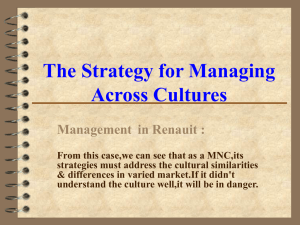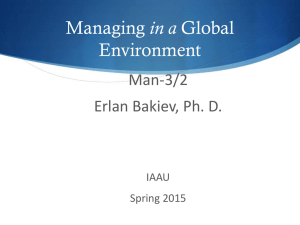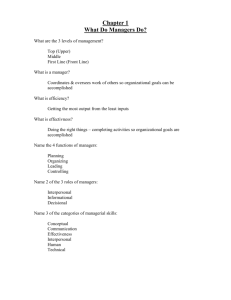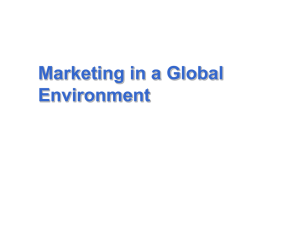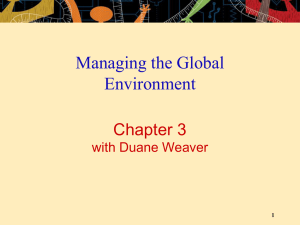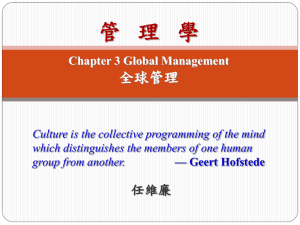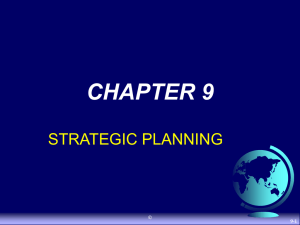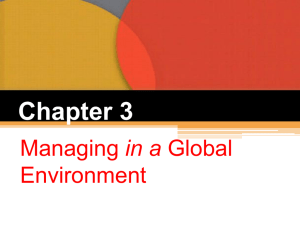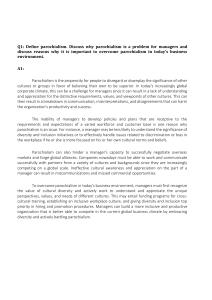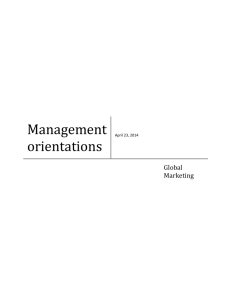CHAPTER SUMMARY – CHAPTER 4
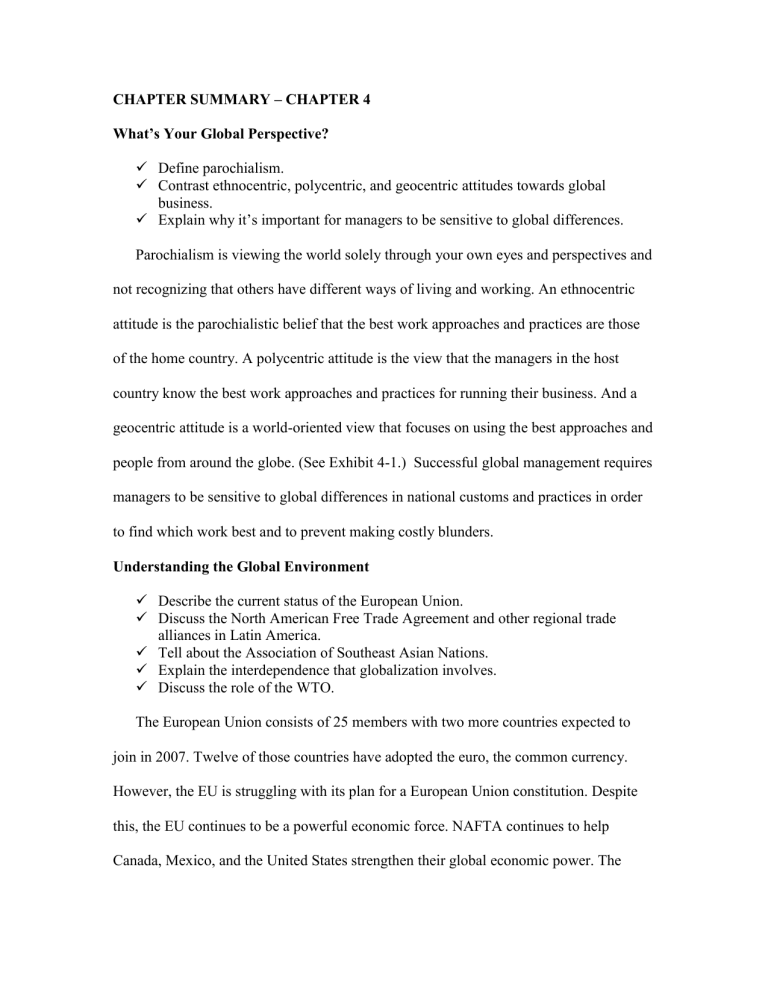
CHAPTER SUMMARY – CHAPTER 4
What’s Your Global Perspective?
Define parochialism.
Contrast ethnocentric, polycentric, and geocentric attitudes towards global business.
Explain why it’s important for managers to be sensitive to global differences.
Parochialism is viewing the world solely through your own eyes and perspectives and not recognizing that others have different ways of living and working. An ethnocentric attitude is the parochialistic belief that the best work approaches and practices are those of the home country. A polycentric attitude is the view that the managers in the host country know the best work approaches and practices for running their business. And a geocentric attitude is a world-oriented view that focuses on using the best approaches and people from around the globe. (See Exhibit 4-1.) Successful global management requires managers to be sensitive to global differences in national customs and practices in order to find which work best and to prevent making costly blunders.
Understanding the Global Environment
Describe the current status of the European Union.
Discuss the North American Free Trade Agreement and other regional trade alliances in Latin America.
Tell about the Association of Southeast Asian Nations.
Explain the interdependence that globalization involves.
Discuss the role of the WTO.
The European Union consists of 25 members with two more countries expected to join in 2007. Twelve of those countries have adopted the euro, the common currency.
However, the EU is struggling with its plan for a European Union constitution. Despite this, the EU continues to be a powerful economic force. NAFTA continues to help
Canada, Mexico, and the United States strengthen their global economic power. The
U.S.-CAFTA is relatively new, but will likely play a big role in promoting trade liberalization between the United States and five Central American countries. The proposed FTAA has not been signed, as the leaders of the 34 nations it covers have yet to agree on its implementation. Mercosur (Southern Cone Common Market) will continue to face serious problems, especially if the FTAA is eventually ratified. ASEAN is a trading alliance of ten Southeast Asian nations. This region will increasingly be important in the global economy. As globalization continues and grows in importance, one of the challenges is the interdependence of countries’ economies. To counteract some of the risks, the World Trade Organization (WTO) plays an important role in monitoring and promoting global trade.
Doing Business Globally
Contrast multinational, multidomestic, global, transnational, and born global organizations.
Describe the different ways organizations can go international.
Define global sourcing, exporting, importing, licensing, and franchising.
Describe global strategic alliances, joint ventures, and foreign subsidiaries.
A multinational corporation is a term usually used to refer to any and all types of international companies that maintain operations in multiple countries. A multidomestic organization is an MNC that decentralizes management and other decisions to the local country, which reflects the polycentric attitude. A global organization is an MNC that centralizes management and other decisions in the home country, which reflects the ethnocentric attitude. A transnational (or borderless) organization, which reflects the geocentric attitude, is an MNC that has eliminated artificial geographical barriers and uses best work practices and approaches from wherever. A born global organization is an organization that has been global from inception.
Global sourcing is purchasing materials or labor from around the world wherever it is cheapest. Exporting is making products domestically and selling them abroad. Importing is acquiring products made abroad and selling them domestically. Licensing is usually used by manufacturing organizations that make or sell another company’s products and gives that organization the right to use its brand name, technology, or product specifications. Franchising is similar but is usually used by service organizations that want to use another company’s name and operating methods. Global strategic alliances are partnerships between an organization and foreign company partners in which they share resources and knowledge to develop new products or build production facilities. A joint venture is a specific type of strategic alliance in which the partners agree to form a separate, independent organization for some business purpose. A foreign subsidiary is a direct investment in a foreign country by establishing a separate and independent production facility or office. (See Exhibit 4-5.)
Managing in a Global Environment
Explain how the global legal-political and economic environments affect managers.
Discuss Hofstede’s five dimensions for assessing country cultures.
Explain the nine GLOBE dimensions for assessing country cultures.
Discuss the challenges of doing business globally in today’s world.
The laws and political stability of a country are issues in the global legal-political environment with which managers must be familiar. Likewise, managers must be aware of a country’s economic issues such as currency exchange rates, inflation rates, and tax policies. Geert Hofstede identified five dimensions for assessing a country’s culture including individualism-collectivism, power distance, uncertainty avoidance, achievement-nurturing, and long-term/short-term orientation. (See Exhibit 4-7.) The
GLOBE studies identified nine dimensions for assessing country cultures, many of which are identical to Hofstede’s cultural dimensions. The GLOBE dimensions extended
Hofstede’s work and include assertiveness, future orientation, gender differentiation, uncertainty avoidance, power distance, individualism/collectivism, in-group collectivism, performance orientation, and humane orientation. (See Exhibit 4-8.)
The main challenges of doing business globally in today’s world deal with the openness associated with globalization and the significant cultural differences between countries.
